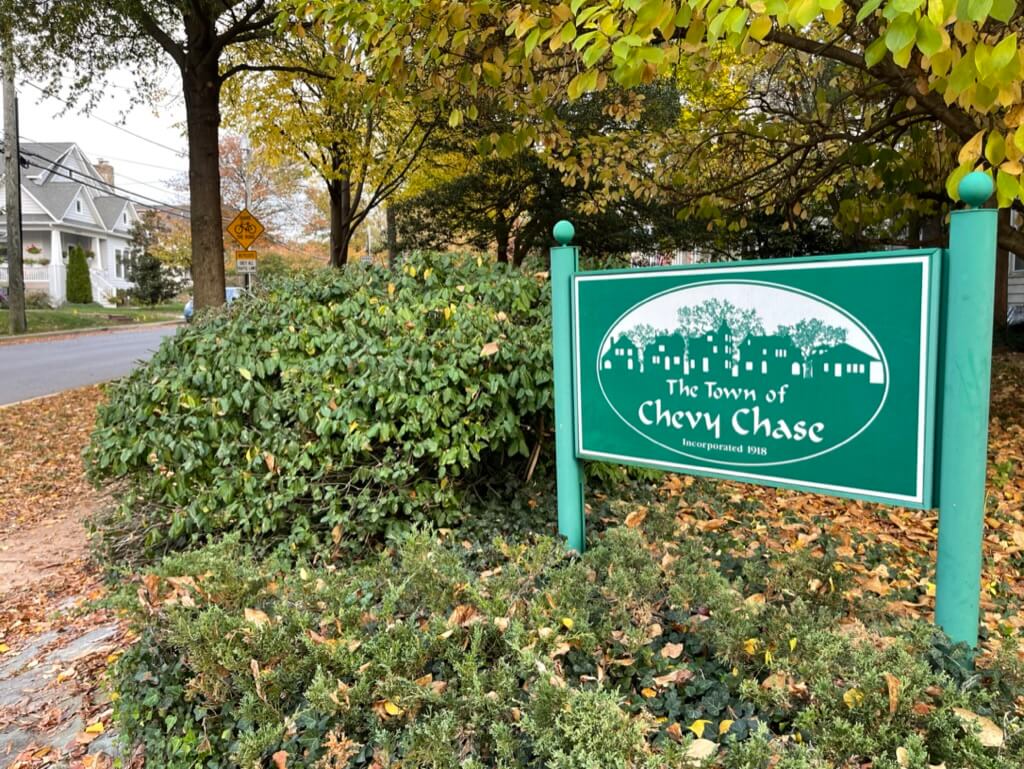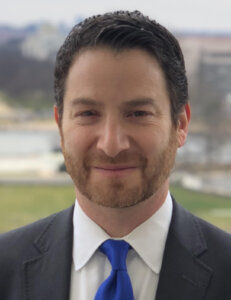Local governments are losing the fight against antisemitism. Here’s how to win
Twice in the past five years, neo-Nazis and KKK members have come here to spew their hatred in my town, writes a local Jewish politician

Graphic by Angelie Zaslavsky
American Jews are in a state of shock at the unbridled antisemitism pouring out from all infected corners of our civic life.
Entertainers and athletes are using their social media platforms to mobilize hate against our community. A former president has attacked Jews for being “ungrateful” for his support of Israel. Mass murderers have killed worshippers in our synagogues, and antisemitic incidents are on a seemingly inexorable rise.
I’ve experienced this trend firsthand as the vice mayor of Chevy Chase, where I’m now serving in my sixth year in office. Nestled between Bethesda, Maryland, and Washington, D.C., our town is a suburban commuter’s paradise: roughly 3,000 residents live close enough to D.C. for work but far enough away to enjoy the evening’s calm.
One would never expect that my community, with its many Jewish residents, would be a flashpoint for antisemitism. But it is.
Twice in the past five years, neo-Nazis and KKK members have come here to spew their hatred, leaving fliers and menacing leaflets at residents’ homes. I pushed back, organizing an intersectional town forum to combat explicit hate speech directed against Jews and Black Americans. I led a public rebuke of these incidents and coordinated with the local police and state’s attorney general’s office.
While there was support for our pushback against the hate in our community, we had no local infrastructure to support us. To put it bluntly, barely any work had ever been done to confront the historic antisemitism of this area, leaving it to fester and us vulnerable to it.
Our town was formed in the late 1890s by Francis Newlands, a racist and white supremacist, whose impact on the area cannot be overlooked. Only decades ago, housing covenants prevented “… any person of Negro blood or… any person of the Semitic race” from living here.
I was starkly reminded of this history when I proposed to our town council that it take action on the issue. We had an opportunity to sign onto a national letter organized by the Anti-Defamation League and the U.S. Conference of Mayors —“The Mayor’s Compact to Combat Hate and Extremism” — which expressed opposition to hate and antisemitism in our communities.
I thought that it would be unanimously adopted. Instead, it was unanimously opposed.
The arguments against signing on to the letter were tactical. One council member specifically rejected a line in the letter that stated, rather matter-of-factly, that “We are seeing efforts, particularly in our states, to weaken existing civil rights policies and reduce their enforcement, suppress voting, and restrict what can be taught in our schools or housed in our libraries.”
It was the letter’s honest assessment of America in 2022, among other complaints, that made the council choose to reject the letter. But by doing so, the council paradoxically reinforced the danger to minority communities.
As I sat through the discussion, I felt as if I was being transported back to the 1920s, where Jews were confronted by a myriad of silent prejudices. Is this what it felt like to live in a redlined community, not being able to live where one chose? To be excluded from local social clubs and community groups? To be excluded from university after university, denied entry because of our religion?
For all the progress we’ve made as American Jews, including in my home of Montgomery County, confronting hate is more than a full-time job (and this council job is part time!). If I couldn’t get the Council to acknowledge prejudice in 2022, what chance did I have at getting it to acknowledge a deeper problem like historic antisemitism?
Our local government turned its back on an opportunity to counter antisemitism at the precise moment that it should have stood up and stood for something. It buried its head, likely squeamish about the idea that there may be a real problem to deal with. And by attempting to bury the issue, perhaps to avoid offending neighbors in the community, it naively hoped that it would go away.
But in 2022, no wishful thinking will make antisemitism and hate go away. As Jews, we know that ignoring antisemitism only fans its flames and empowers bad actors.
We must therefore call on our local leaders to acknowledge it, deal with it and fix it.
Fortunately, our county council has made a start. It just affirmed the International Holocaust Remembrance Alliance definition on antisemitism. But this is just the bare beginning; much more work needs to be done on the ground.
At the local level, we must take a page from the efforts of our American Jewish forebears. There is still a desperate need to build political space in which our leaders feel comfortable countering antisemitism.
We must be honest about our history, even if it makes some of our neighbors uncomfortable. We must use honest discussions as an opportunity to build constituencies against antisemitism that are forged through alliances, meaningful partnerships and public education.
The age-old hate of antisemitism that exists here in our own backyards won’t just go away. There is still work to be done, even in 2022.
To contact the author, email [email protected].























